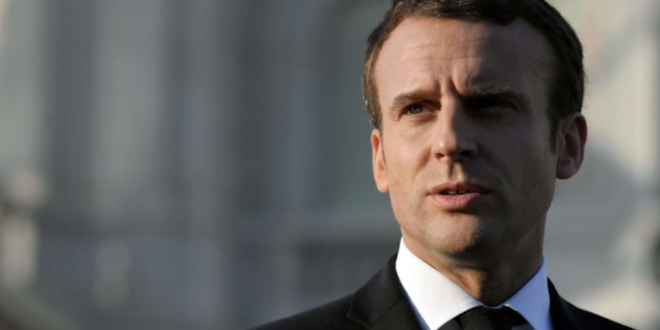European elections have sent shockwaves through the continent, revealing significant shifts in political landscapes and signaling potential changes in geopolitical dynamics.
The results have been particularly tumultuous for French President Emmanuel Macron and the Green parties across Europe, notably in Germany.
The elections proved especially disastrous for Macron and his allies. Macron’s pro-European coalition suffered a severe defeat, trailing far behind the far-right National Rally (RN) led by Marine Le Pen.
With RN securing 31.5% of the vote against Macron’s 15.2%, the French president was compelled to dissolve the National Assembly and call for early parliamentary elections, slated for June 30, with a second round on July 7. This move underscores the depth of the political crisis in France and Macron’s precarious position.

In Germany, the Greens faced a substantial setback, losing a significant portion of their previous support. The party, once a strong advocate for aggressive climate policies and military support for Ukraine, saw its vote share drop dramatically to 11.9%, down from 20.5% in the previous European elections.
This decline highlights growing public disillusionment with the Green New Deal and the broader Davos agenda, which many voters now reject.
A notable trend across these elections is the backlash against leaders who have supported military involvement in Ukraine. Macron, a vocal proponent of arms deliveries or even the possibility of sending troops to Ukraine, found himself at the losing end as voters increasingly oppose continued conflict with Russia.
This sentiment resonates beyond France, as German voters also turned away from parties advocating aggressive stances towards Russia.
The electoral outcomes in France have sparked discussions about potential political shifts in Germany. With the right-wing AfD (Alternative for Germany) and the newly formed left-national BSW (Bündnis Sahra Wagenknecht) making significant gains, there is increasing pressure on the German government.
The AfD’s support surged to 15.9% and BSW debuted with a remarkable 6.1%. Both parties, known for their peace-oriented policies, capitalized on the declining popularity of the Greens and the ruling coalition.
As Germany faces upcoming state elections in Eastern regions, where the AfD and BSW are particularly strong, the prospect of these parties gaining more influence looms large.
If the AfD were to achieve anywhere near the same result in Saxony as in this European election, the party would be close to an absolute majority and could form the government of a German federal state. Such an outcome could threaten the stability of Chancellor Olaf Scholz’s government, potentially leading to new national elections.
Immediately after the election outcome was clear on Sunday, the secretary general of the opposition CDU, Carsten Linnemann, called on Scholz to submit a vote of confidence to parliament, which could lead to new elections if he does not receive a vote of confidence from the majority of parliament.
The electoral gains of the AfD and BSW, both advocating for an end to the Ukraine conflict, indicate a broader geopolitical shift. These parties, along with figures like former US president Donald Trump, emphasize diplomacy over military solutions.
If these political forces gain more power, Europe could see a significant change in its approach to the Ukraine conflict and relations with Russia.
Elon Musk’s recent comments on X reflect this changing sentiment. Musk questioned the negative portrayal of the AfD, noting that their policies do not seem extremist. His statement underscores the broader reevaluation of political labels and alliances in light of evolving public opinions.
The upcoming state elections in Eastern Germany could further solidify these trends. With the AfD already leading in these regions, their potential victories could dismantle the current government coalition, prompting early national elections. Such a scenario would likely bolster the influence of peace-oriented parties and diminish the dominance of pro-war advocates.
It is also remarkable that the AfD finished on par with the CDU among young voters. Previously, the Greens were particularly strong among youth. In the last election, the Greens scored 30% among young voters but that fell this time to 12%. CDU & AfD scored 17% among young voters.

The political earthquakes in Europe are more than just electoral shifts; they represent a profound rethinking of Europe’s geopolitical strategies. As traditional power structures face challenges, new alliances and priorities are emerging.
The call for peace and diplomatic solutions, echoed by both European and American political figures, could reshape the continent’s future and its role on the global stage.
The recent European elections highlight significant political realignments and emerging geopolitical shifts. The rejection of the Green New Deal and war-supporting policies, coupled with the rise of peace-oriented parties, suggests a changing tide in European politics.
As France and Germany navigate these turbulent waters, the outcomes will undoubtedly influence the broader geopolitical landscape, with ramifications that extend far beyond the continent.
 Geostrategic Media Political Commentary, Analysis, Security, Defense
Geostrategic Media Political Commentary, Analysis, Security, Defense






You must be logged in to post a comment.